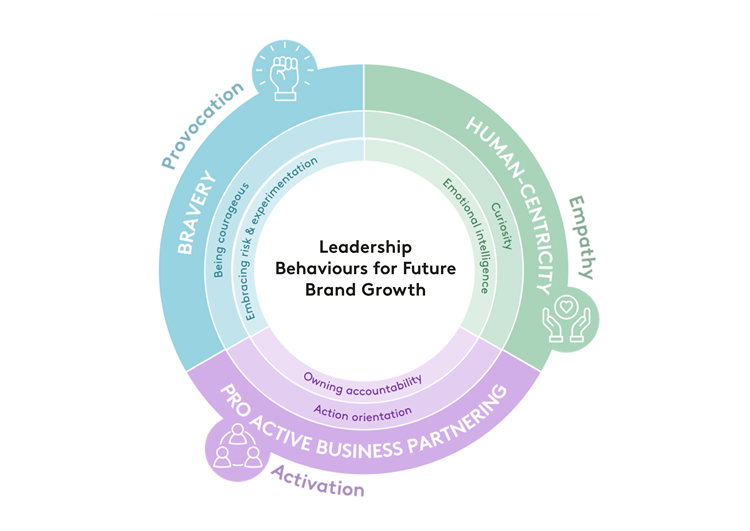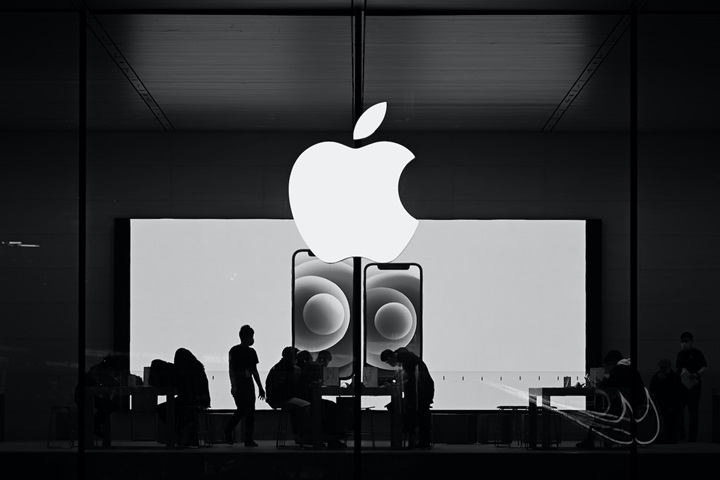In a world of constant disruption where elements like war, rising inflation, and unexpected environmental disasters are shaking up society, polarising responses from companies are seen in their strategic and operational response. We see two types of companies: those who are struggling and are losing the narrative of the marketplace, and those who are anticipating the future and are able to swiftly adapt.
Kantar’s Insights 2030 report highlighted that senior business leaders in leading organisations see customer centricity and imagination as key drivers of growth. Successful leaders are able to have clarity on the rapidly shifting marketplace and guide their brand towards future growth.
Growing brands in turbulent times requires leaders to act differently
In order to navigate and thrive through change, marketing leaders need to develop different behaviours, shifting their focus away from technical expertise and more towards behaviours for impactful delivery. The emphasis is increasingly on how leaders do things, how they show up and how they are elevating the impact of the commercial organisation through customer centricity and imagination.
Igniting the spark of imagination
Insights 2030 has proven that leadership behaviours are one of the most significant levers and enablers of change, acting as a catalyst that ignites the spark of imagination. Building on what we learned from the drivers of customer centricity and imagination, we see six critical leadership behaviours aligned to three themes of Empathy, Provocation, and Activation.

Human-centricity
Human-centricity revolves around a desire to get to the why behind human behaviour. Leaders must have:
1. Curiosity – A strong desire to learn about human behaviour and their interactions with brands in the world around them. Being curious about what the future may look like to unlock new opportunities. A strong future focus and awareness of the assumptions underlying different scenarios is critical to action upon new insights quickly.
2. Emotional Intelligence – The ability to understand the self and others to enhance impact and collaboration. Emotional intelligence has repeatedly been seen as one of the biggest predictors for leadership success, though we rarely explore how we can change and build it for individuals and teams.
Bravery
Being brave means daring to provoke the business and being comfortable with uncertainty, leveraging deep human insights and future perspectives to take a stance and provide recommendations with a perspective to drive brand growth. Leaders must:
3. Be Courageous – Adopt a provocative mindset to challenge the status quo and potentially manage difficult conversations. This is not about who shouts loudest. It is about standing up and championing a perspective that is grounded in human insight. Courage does not come naturally to everyone; it should be seen as a muscle that needs to be exercised and strengthened through practice.
4. Embrace risk & experimentation – Imagining future perspectives requires you to feel comfortable with uncertainty. Shift away from validation and certainty to feeling comfortable saying ‘I do not know for sure, but I am going to find out and learn from it’. The unlock will be to dare to bring in new ideas, experiment, and identify successes that can be scaled quickly. It won’t happen overnight, and it may take time to generate sustainable culture change in the team and organisation.
Pro-active business partnering
Marketing leaders must proactively build relationships with the rest of the business, engaging commercial stakeholders as trusted partners to take consistent action. They must:
5. Be action-oriented – Be close to business priorities and leverage insights and commercial knowledge to drive agile decision-making, helping to prioritise and focus on the actions that matter most to the business. The key is to keep things simple and consistent over time; doing this has proven to increase brand differentiation and predisposition the fastest, hence leading to faster brand growth.
6. Own accountability – Be intentional in proving the value of marketing by taking ownership of your personal reputation alongside the marketing function. Dynamic performance management – to understand the impact of initiatives, shifts in critical assumptions, and changing demand in the marketplace – is at the heart of ensuring the best brand ROI.
The Kantar BrandZ Most Valuable Global Brands 2023 report, including analysis on the world’s most valuable tech brands, is available now at Kantar BrandZ Most Valuable Global Brands 2023 report.
For an overarching view of a brand’s performance, Kantar has launched a new, free interactive tool using BrandZ’s wealth of data. BrandSnapshot powered by BrandZ delivers intelligence on 10,000 brands in more than 40 markets, offering a quick read on a brand’s performance in a category.







